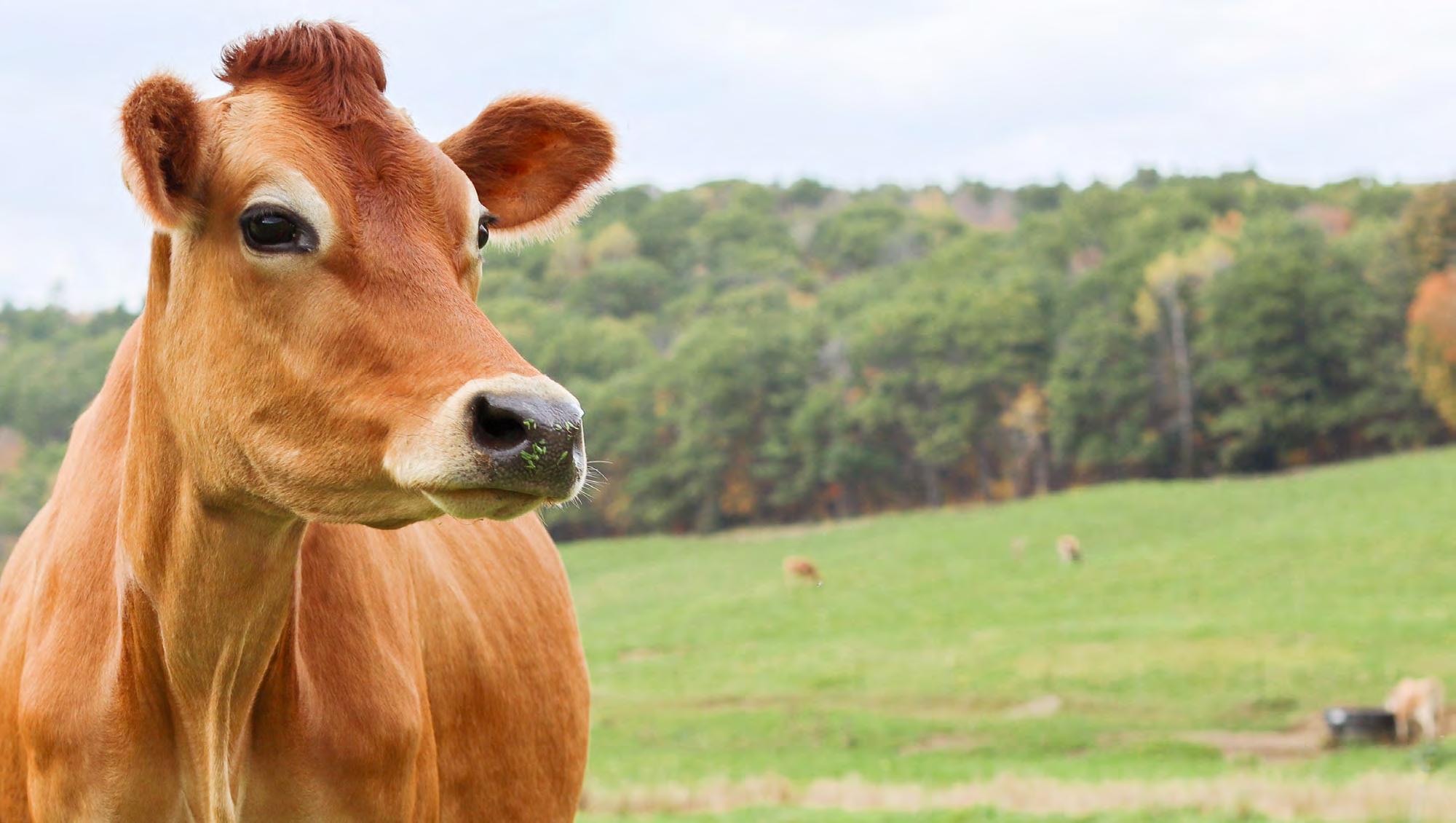

IMPACT REP RT 2025
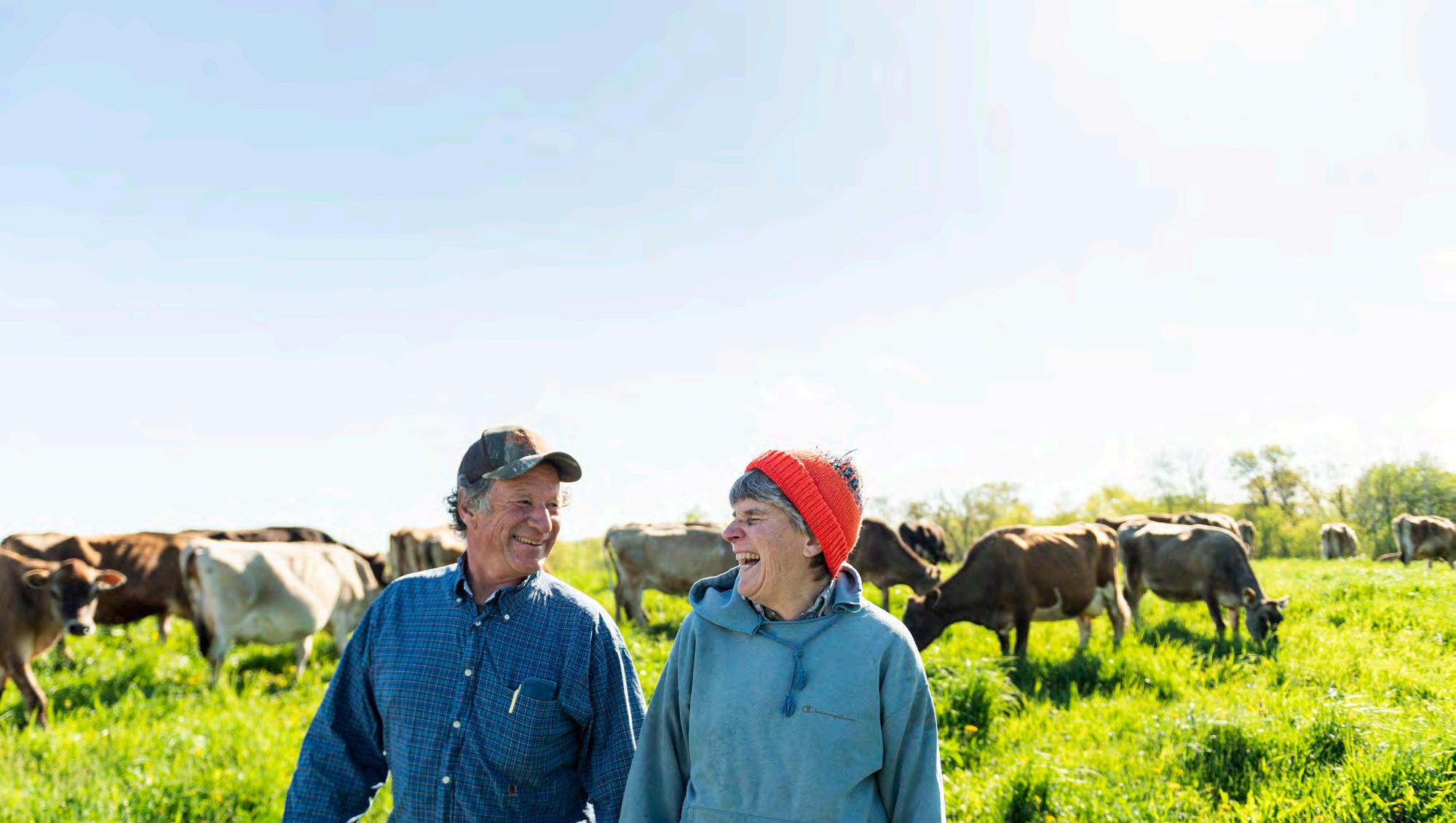
FROM THE PRESIDENT OF THE BOARD
STRONGER TOGETHER: A COOPERATIVE BUILT TO
LAST
Dave Hardy
Farmer and Organic Valley Board President
Farms are the economic engine of any rural community and Organic Valley is an important part of that engine. Our mission is to save, serve, and safeguard organic family farms and we’ve being doing so for more than three decades.
We are a co-op with strong leaders, strong farmers, and strong values. As an Organic Valley dairy farmer and former employee, I am humbled in my role as board president.
I truly believe our cooperative is strong because it is farmer-owned. Every one of our farmers has a voice and opportunities to be involved. It’s our cooperation and commitment to quality that has led us on this 37-year journey to produce premium products while protecting the environment with organic practices. Through innovation, continuous improvement, and pasture-based farming, we provide an outlet for farmers to stay on the land they love.
When I look across my farm landscape in New York, I am reassured seeing my family is doing all it can to benefit the earth and animals that share my farm, from pollinators to sometimes-pesky critters. They all have a place. Knowing there are 1,600 Organic Valley farmers across 29 states who have the same respect for all that nature provides makes me proud.
I also feel fortunate my son is taking over the farm that my wife Susan and I started in 1995 — a farm whose barndoors could have been closed forever, like the thousands of farms lost in this country annually. While farms are lost to farmers aging out or losing their milk markets, Organic Valley continues to bring on new farms, many being a younger generation that will feed the nation.
We strive to lead the comeback of American family farms, and we couldn’t do it without your help. Your purchase of Organic Valley® milk, eggs, and produce, makes a difference to farmers, animals, and the planet.
I recently returned from our cooperative’s annual meeting, where hundreds of farmers and employees gathered to reconnect, talk about the state of the coop, share our victories and challenges, and envision our future successes. There was strong, positive energy during that meeting and the theme continued to be: Our momentum is strong, and if we can help save more family farms — we will.
The 2025 Impact Report will show you where we’ve been and where we are headed.
Thank you, Dave
Hardy
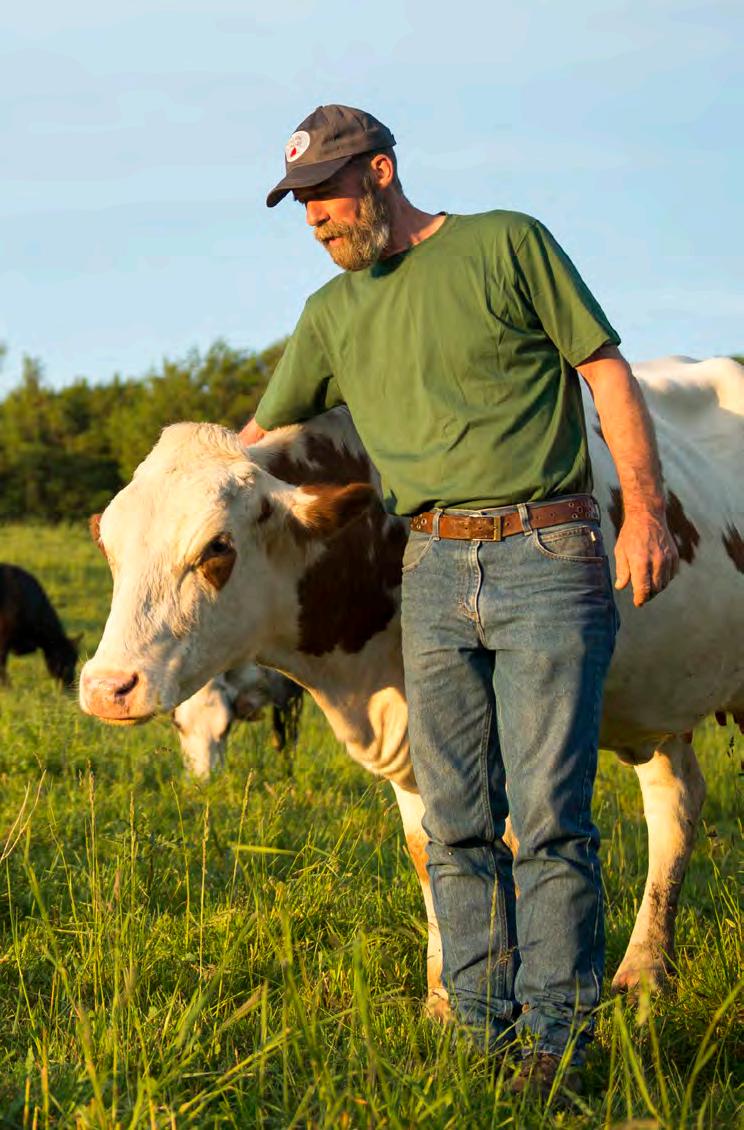
FROM THE CEO
TOGETHER, WE BUILD A BETTER FOOD FUTURE
Shawna Nelson Organic Valley CEO
I wake up each morning knowing that my work for the day matters to over 1,600 families across the country on the farm and to the millions of families who choose to put Organic Valley® products on the table. We have a mission here at our cooperative, one that makes a real impact on the future of organic food and farming in the U.S.
While my work as CEO has just begun, my life has intertwined with the growth and impact of Organic Valley for the last two decades. I grew up in a small town in the Driftless Area of Wisconsin — a place of rolling hills where barns dot the landscape. This is where Organic Valley was born from the dreams and necessities of a few dedicated family farms. This was a cooperative I wanted to be a part of.
“Cooperatives Build a Better World,” is the theme of the 2025 UN International Year of Cooperatives. I deeply believe this and see it firsthand. Our farmers own this organization and work together toward common goals that benefit not only their families but strengthen their communities.
This structure is one reason I looked up to Organic Valley those 20 years ago when I began an internship at the co-op. I was not alone. As word spread of the cooperative that did things a little differently, more farms wanted to join, and more
rural Wisconsin youth envisioned new possibilities for the future. Today, I am proud to serve the cooperative, owned and guided by its farmer member-owners, as CEO.
Organic Valley is looking at the next 20 years as even more important than the last 20. You’ll see some of our impact from the last two years in this report, work that would not have been possible without the partnership between 1,600 organic family farms and over 820 employees. Even more importantly, you will see how bright the future can be when we work together, cooperatively, for the future of food and farming.
Though our farmers’ backgrounds and lifestyles are diverse — from Plain community members in the Midwest to farming leaders on the East Coast, innovators on the West Coast, first-generation farmers, and century farm owners, we are united in making a positive impact. Our farmers are our strength. And that strength, with the support of everyone reading this report, will grow to be the foundation of the American food system.
Organic may not be the biggest part of the food and farming system, but we have a big impact.
Thank you,
Shawna Nelson

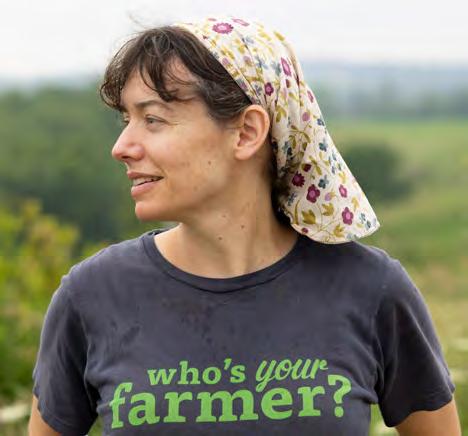

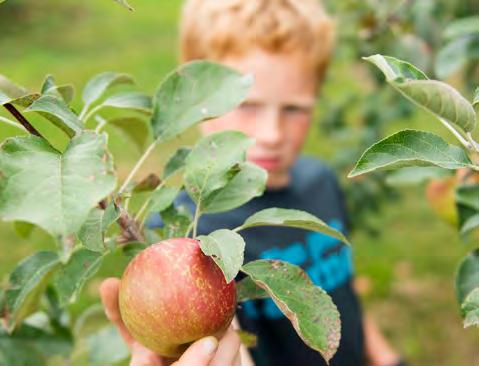
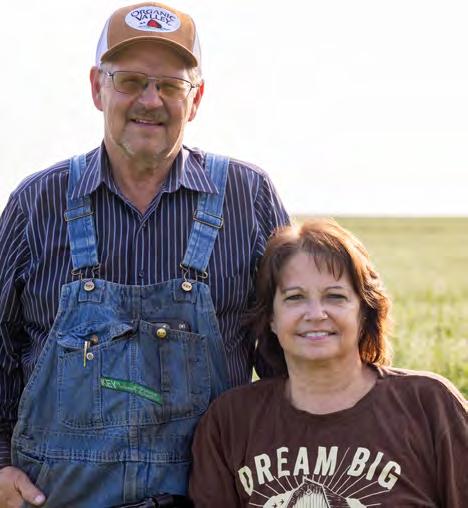


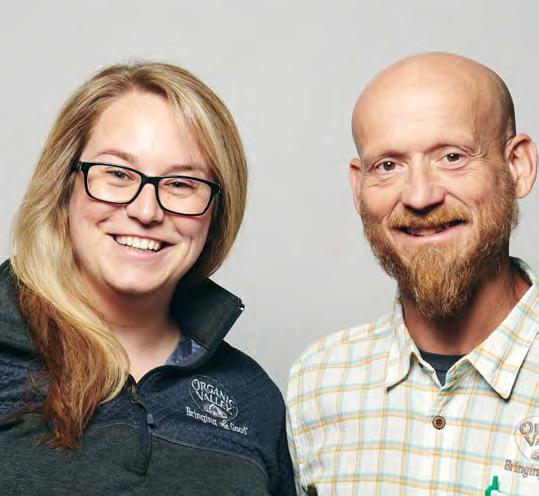
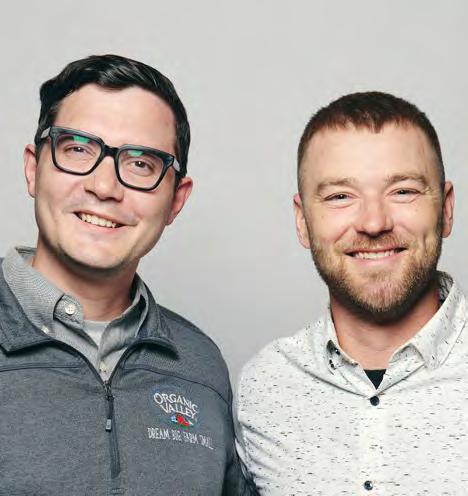
FARMER-OWNED CO-OP

INVESTING IN OUR FARMERS
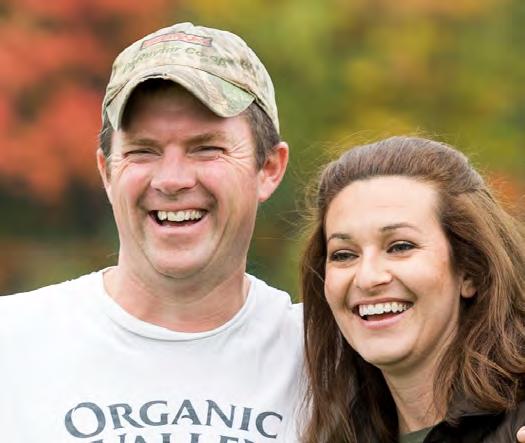
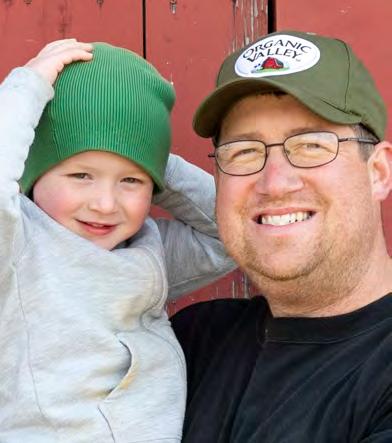

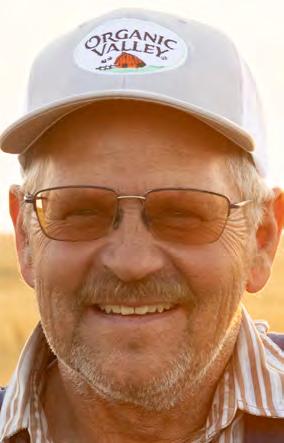

We do things a little differently at Organic Valley. Our directors are all farmers elected by the family of farms that own our cooperative, and that board looks out for the farmers first and foremost. Our farmer board has spent years building a stable pay price philosophy that gives organic family farms a way to plan for the future. This approach aligns with the UN’s 2025 Year of Cooperatives theme, “Cooperatives Build a Better World,” showcasing our commitment to sustainable and equitable business practices.
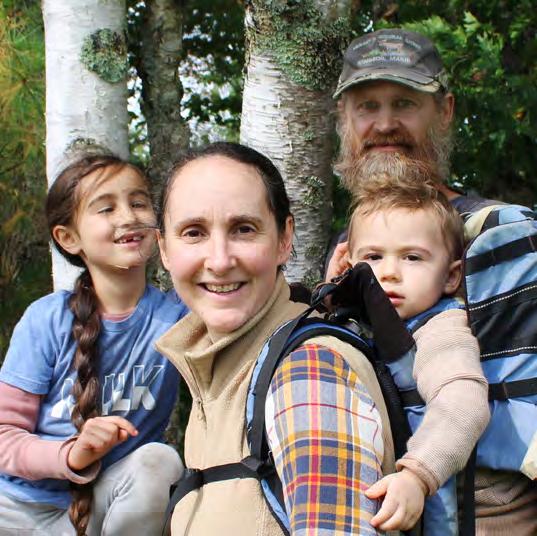
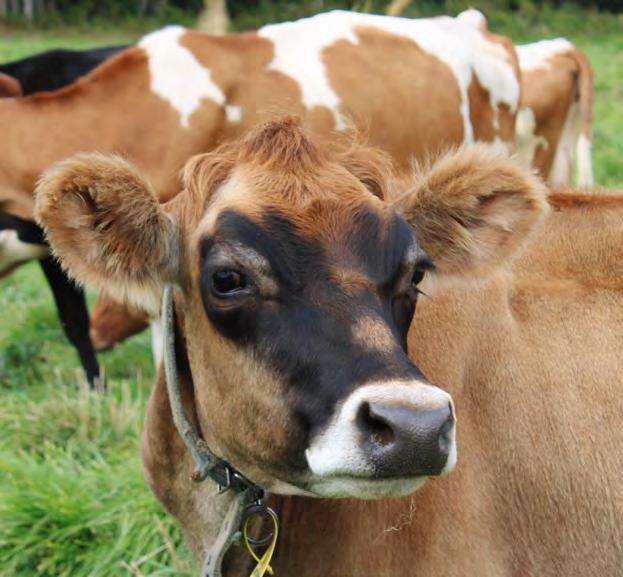
“It’s important to be tied to a place, and this allows us to work with our family. We like being involved in a multi-generational way. Being tied to a place and land is an admirable thing to do, and it is a difficult thing to do.”
- Nate Clark, Maine
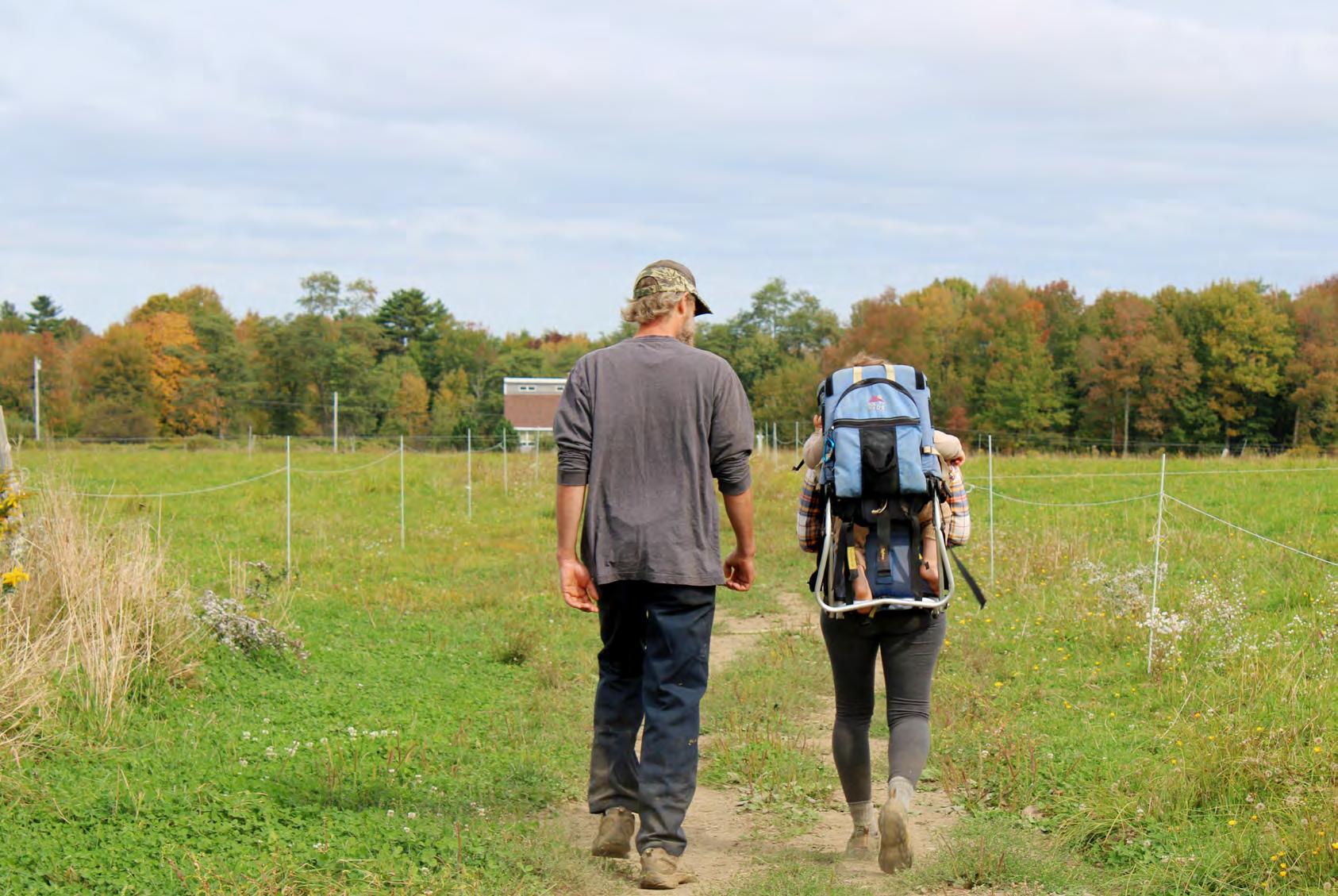
Katie Webb Clark and Nate Clark, Maine
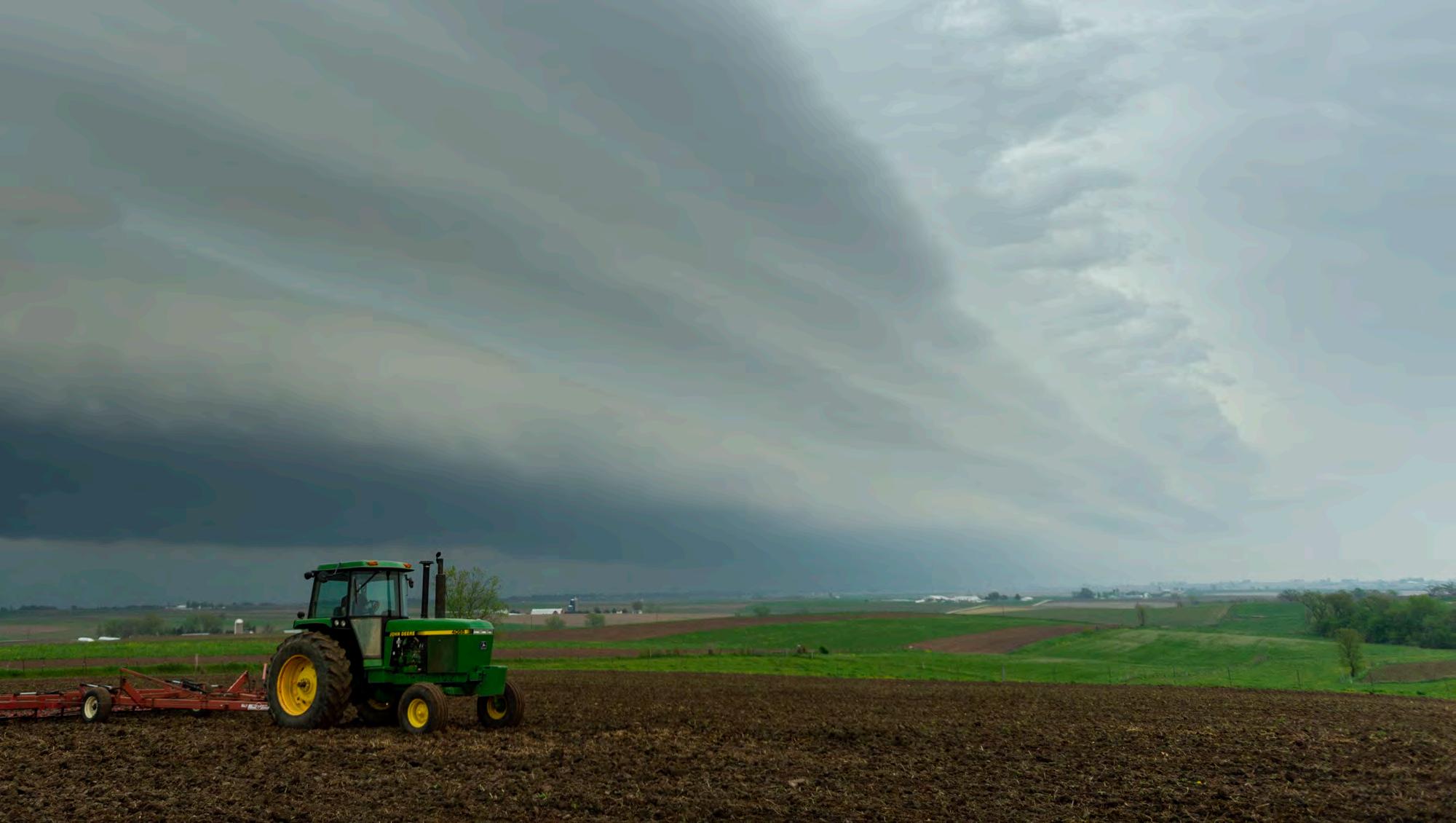
Throughout 2023 and 2024, our cooperative decided to increase pay prices for our dairy farmers. With increased pressure from inflation, drought and floods, and increased land costs to off-farm realities, we knew it made mission sense. Sometimes, it takes a different approach - like a revolutionary pay structure that gives farmers stability in a world where that’s increasingly hard to find. Our investment in pay price also provides the opportunity to develop more organic farm land and attract more future organic farmers. Our investment in pay prices helps keep over 440,000 acres managed organically. Without these efforts, the barn lights in the U.S. countryside would continue to be extinguished.
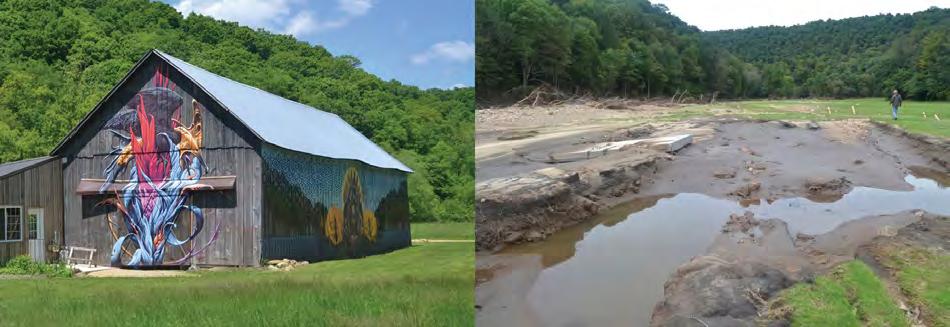
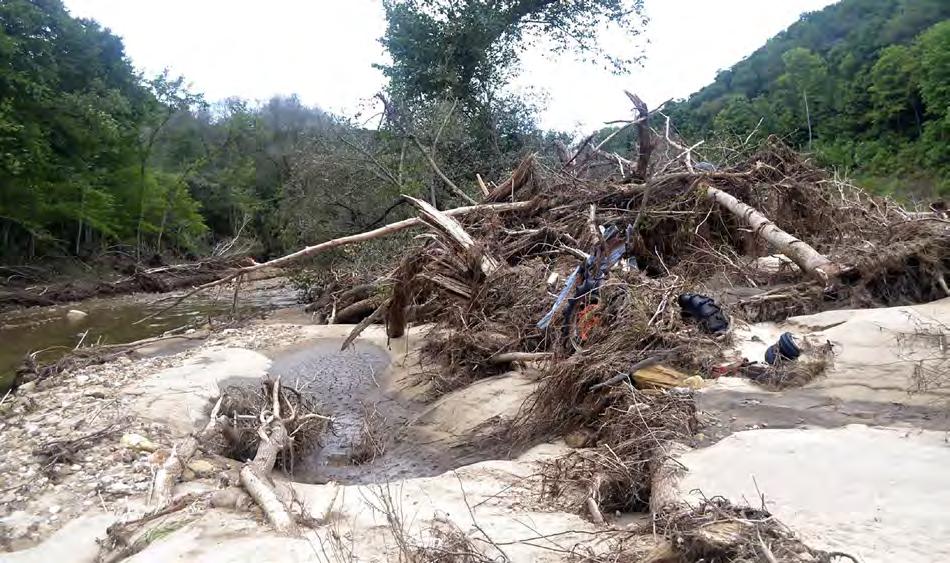
HANDS TOGETHER ARE STRONGER THAN HANDS OFF
4,000 50 NEW 32-34% 200
VISITS TO THE FAMILY FARMS OF OUR COOPERATIVE OF OUR FARMER MEMBERS VOTE EACH YEAR START-UP ORGANIC FARMS
We think of business as a cooperative venture, one where we work together through good and bad. We believe all of us are smarter than one of us, and that building relationships isn’t optional.
In the last two years, over 200 organic family farms decided to join our family of farms. Our employees, who we fondly call CROPPies as a nod to our legal
CULTIVATED BY THE COOPERATIVE FARMS JOINED THE COOPERATIVE
name Cooperative Regions of Organic Producer Pools, visited the farms of our cooperative more than 4,000 times. Even better, our members voted over 3,200 times on the direction of the future of the cooperative, a truly hands-on approach to the future of our cooperative business.
Statistics on page combine efforts from 2023 and 2024
BUILDING FARMERS A STAGE FOR THEIR STORIES
How do you make a difference in food as an organic farmer in a sea of hundreds of thousands of conventional farms? You make your voice heard. You join a group, like a cooperative, and find a stage from which to tell your story. At Organic Valley, we are proud to build the stage for the future of organic family farms.
In the last two years, we’ve innovated new ways to show the story of organic food and farming. Access to farm experiences has been disappearing, even though 81% of Americans said it was important to know where their food comes from, but only 39% had ever visited a dairy farm. To counter this, Organic Valley invited everyone to experience the wonder of our small organic family farms via our annual National Farmers Day livestream, which garnered over 50,000 views from hundreds of classrooms and thousands of consumers over two years.
Over 40 individual media interviews of organic farmers with journalists, podcasters, and media of all shapes and sizes led to hundreds of stories and over 34 million impressions of farmers and their perspectives. More than 500 people also visited our farms in the last two years. Through these efforts, millions of people now have a better sense of where their food comes from. We hope to see that number growing significantly over the next two years.
All said and done, in just two years millions of people heard from the farmers in our cooperative. We believe the impact of a story from an organic farmer is just as powerful as the delicious organic food in the fridge and on our store shelves.

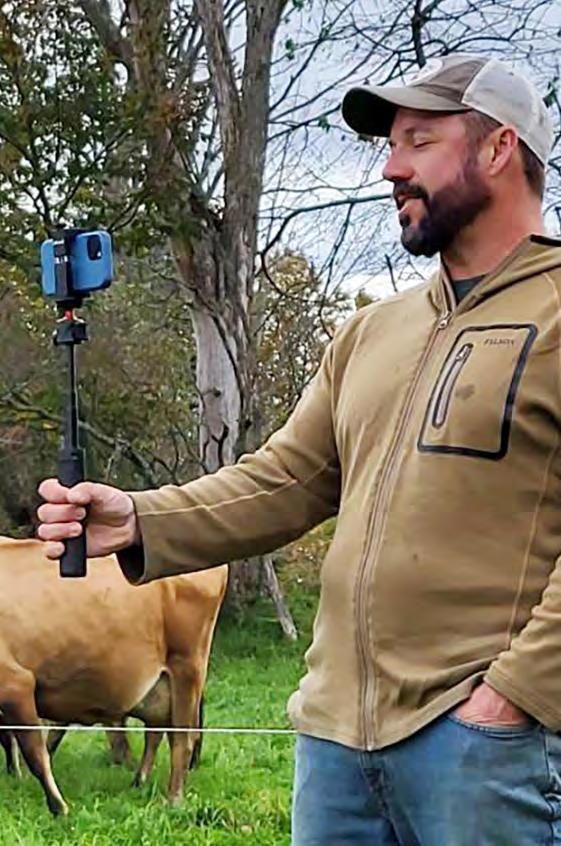
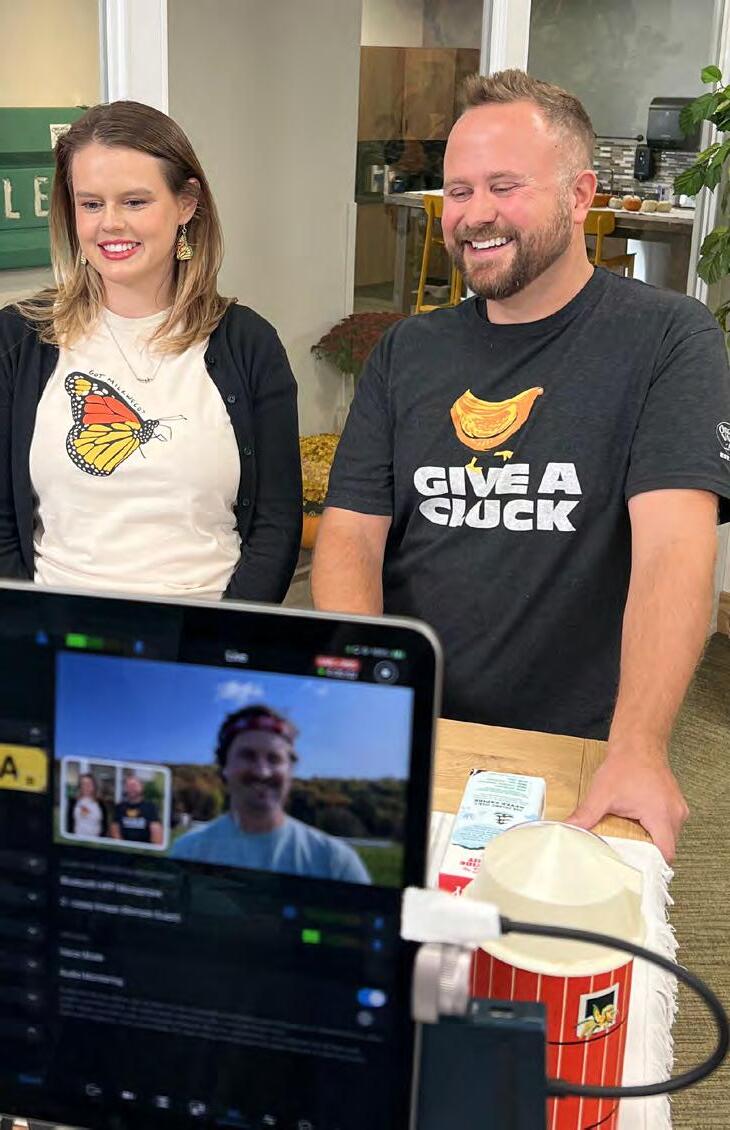
CONNECTING CONSUMERS TO WHERE THEIR FOOD COMES FROM


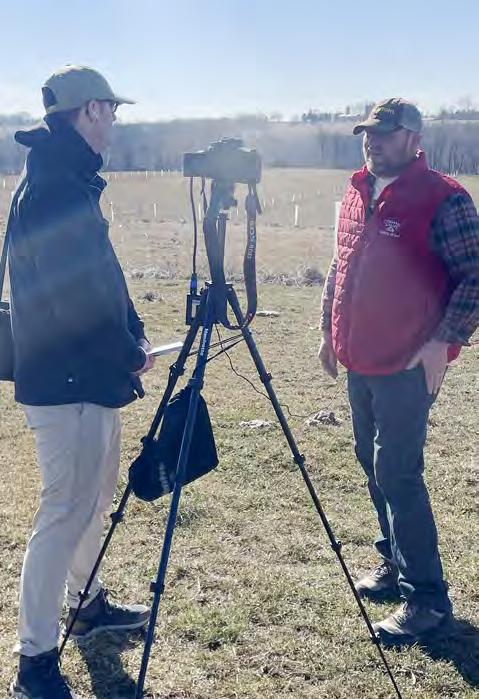
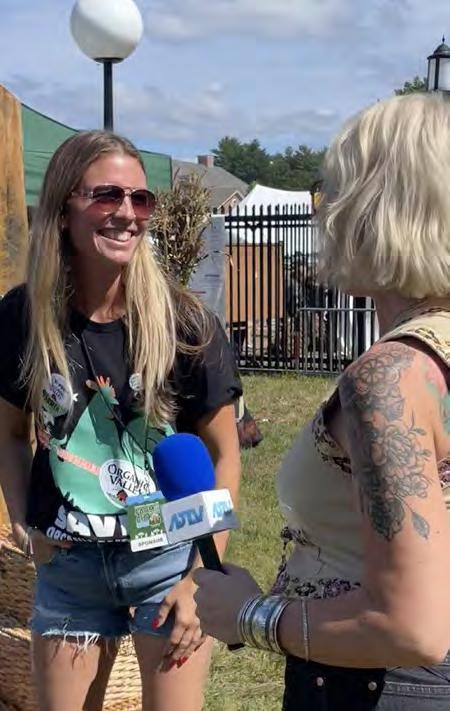
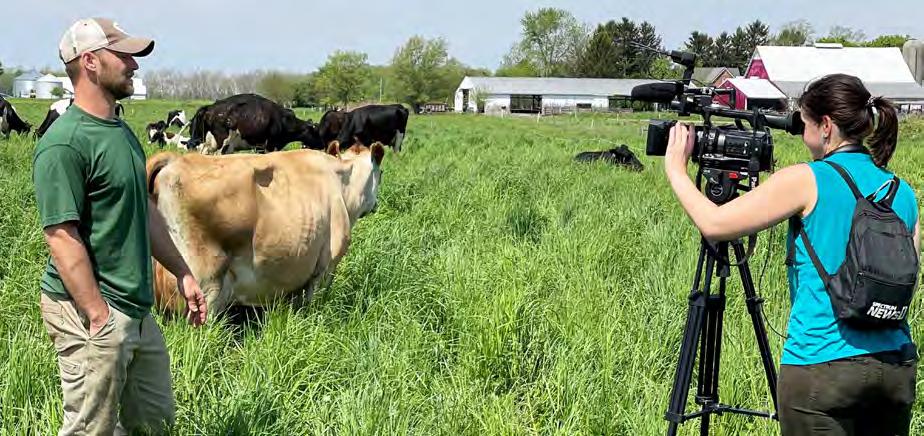




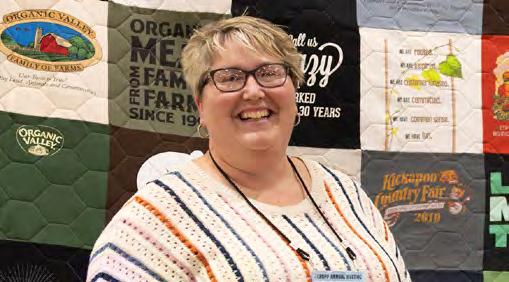

CARE for PEOPLE





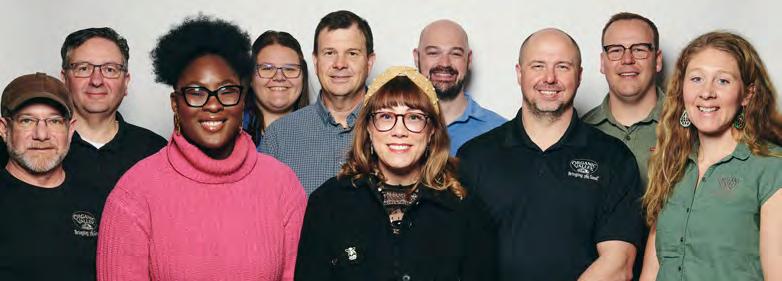
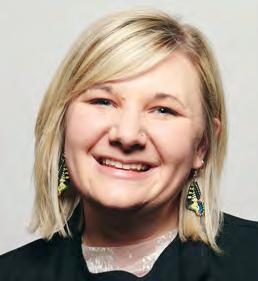

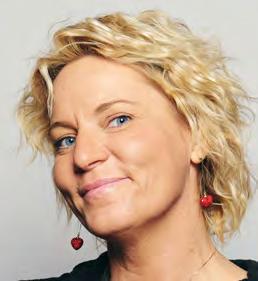


EMPLOYEE EXPERIENCE
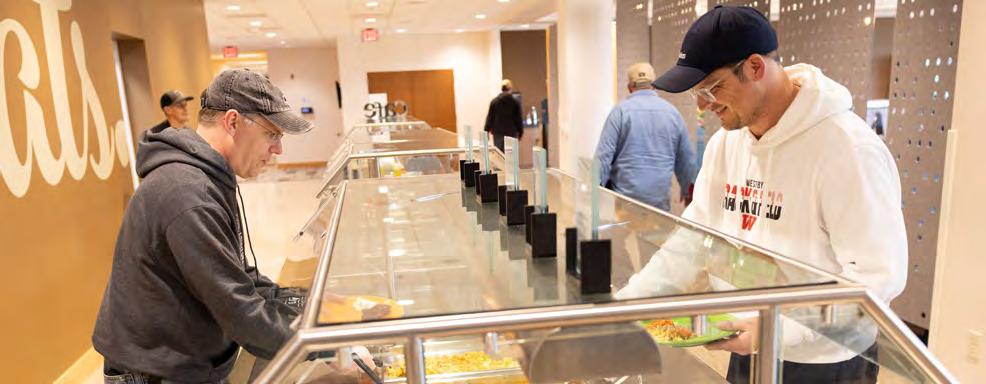


EMPLOYEE EXPERIENCE
At Organic Valley, we are dedicated to fostering healthy and fulfilling lives for all our employees, supporting them at every stage of life and their careers. By enhancing both daily experiences and pivotal career moments, we ensure that our employees feel valued and cared for, which in turn strengthens the overall success of our cooperative.
PEER-TO-PEER RECOGNITIONS
2022 2023
2024 5,525 9,137 9, 366
RECOGNITION AND ENGAGEMENT
Since its launch in 2022, our recognition platform has brought employees closer together by celebrating individual and team achievements. In just the first eight months, there were over 5,500 peer-to-peer recognitions, and in 2024, that number soared to nearly 9,500. This platform has fostered a culture of meaningful recognition, celebrating both personal and professional milestones. Our annual Employee Engagement Survey consistently sees participation rates above industry benchmarks, with 85% of employees taking part each year. The addition of a mid-year “pulse” survey in 2023 further demonstrates our commitment to year-round employee engagement. With over 6,000 comments captured in the most recent survey, we are dedicated to listening to our employees and using their feedback to shape the employee experience.
2022, our recognition platform has brought employees closer together by celebrating individual and team achievements. In just the rst eight months, there were over 5,500 peer-to-peer recognitions, and in 2024, that number soared to nearly 9,500.
DEVELOPING THE NEXT GENERATION OF LEADERSHIP
LEADERSHIP DEVELOPMENT
We have expanded our leadership development offerings to support leaders at all levels. A new leadership development program for all production and distribution supervisors has boosted leader quality and aptitude, enhanced leadership connections between facilities, and improved team engagement. In partnership with the University of Wisconsin-Madison, we now offer Next Level Leadership (annually) and Executive Development (biennially) courses to prepare future leaders of the co-op.
SAFETY
Our safety program has made significant strides, reducing incidence rates and saving the Co-op significant dollars while keeping our staff safer on the job. Highlights include our Conversion and Labeling Facility being a finalist for the Wisconsin Safety Council’s 2023 Corporate Safety Award, a 300% increase in workplace safety recommendations from 2022 to 2024, and nearly 500 resolved recommendations since 2020. These achievements safeguard both the cooperative’s success and the safety program’s vision: to ensure our employees make it home safe and sound each day.
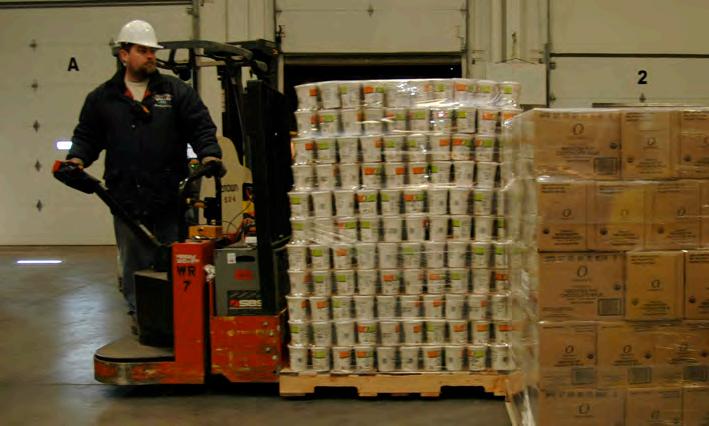

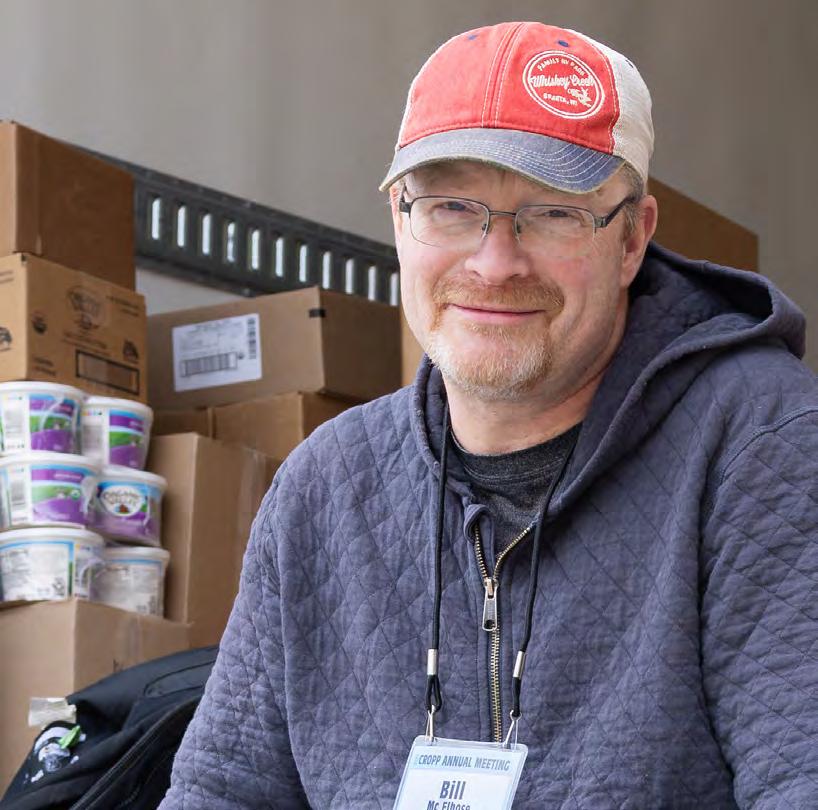
HYBRID WORK MODEL
A NEW HYBRID WORK MODEL
Driven by employee feedback, a consistent employee experience, and a competitive edge for recruitment, we transitioned from flexible work arrangements to a unique Hybrid Work model that balances employee choice, role-based needs, and business goals. Our new Hybrid Work model emphasizes trust and communication between managers and employees, offers consistent expectations across all teams, enhances flexibility and work-life balance, and supports regular in-person connection and collaboration.
To support this new model, we are training managers to shift their focus to outcome-based management and goals, enhancing our digital collaboration tools and processes, and offering a mix of in-person connection, team building, virtual activities, and Co-op-wide events for all employees. This innovative approach positions Organic Valley competitively to recruit top talent, evolve with the ever-changing job market, and retain our hardworking staff who desire more flexibility and choice in their work-life balance.



COMMUNITY BUILDING
ORGANIC ADVOCACY AND LEADERSHIP
GUIDED BY OUR PAST BUT FOCUSED ON OUR FUTURE
Organic Valley operates in a dynamic marketplace, continually impacted by industry trends, government policy, and the public perception of food and farming. The co-op has long maintained a leadership position in advocating for public policy that supports organic family farmers and consumers seeking organic food choices.
As we celebrate the United Nations’ Year of Cooperatives, we reflect on our ongoing work to shape policies and build relationships in the trade.
INDUSTRY LEADERSHIP
In 2024, our very first CEO George Siemon was honored with the Organic Trade Association Lifetime Achievement Award. In accepting the award Siemon lamented how he slept on hardwood floors in Washington, D.C., when he first lobbied for creation of the 1990 Organic Food Production Act.
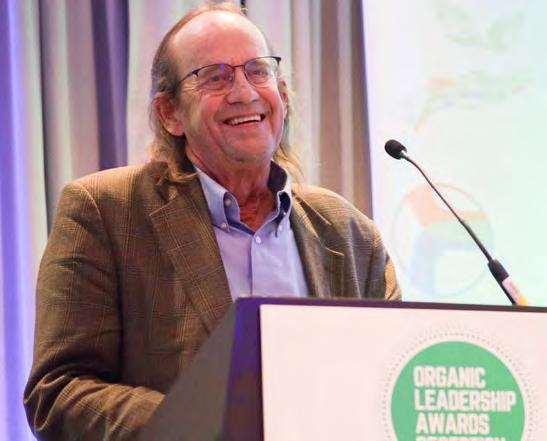
Today, the organic industry achieved $71.6 billion in sales with a growth rate more than double the overall food marketplace. The cooperative continues to exhibit leadership within the Organic Trade Association with five staff serving on councils/task forces including as vice president of the OTA board.
Our cooperative employees also hold leadership roles to promote organic dairy across the U.S. For example, we actively participate in the Wisconsin Cheese Makers Association (WCMA), where we collaborate to support
dairy innovation and sustainability. This year, an Organic Valley employee, Gloria Joseph was elected to the WCMA board, marking a significant milestone in our partnership and reinforcing our influence within the dairy industry.
STRONG PARTNERSHIPS
Our cooperative’s impact is magnified through strategic partnerships with key organizations. We work closely with Organic Voices and the Organic Center, both of which play crucial roles in advocating and advancing scientific research on organic food and farming. At the marquee, Organic Night Out, awards banquet put on by these two collaborators Organic Valley was honored in 2024 with “Best Organic Messaging,” highlighting our contributions and voice in growing organic.
ADVOCACY
Our policy engagement efforts continue to show our commitment to leading the industry. We have been involved in hundreds of discussions yearly at both the state and national levels, advocating for policies that support organic farmers and organic food. We believe food and land stewardship can bridge partisan division and always strive to meet policymakers where they’re at to deepen their understanding of organic food and the marketing co-op Organic Valley.
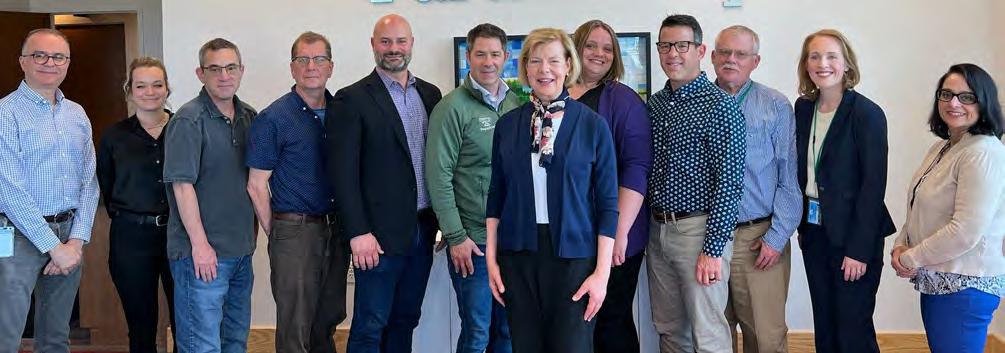
ORGANIC COMMUNITY BUILDING
At Organic Valley, our commitment to growing a vibrant and resilient organic food system is at the heart of what we do. This year, we have continued to build on our strong foundation of community engagement, ensuring that our cooperative remains a beacon of hope and progress for organic farming.
STRENGTHENING RELATIONSHIPS
The organic food and farming movement has always been about connecting with others promoting sustainable organic agriculture and helping all rise together. This year, we have collaborated with several organizations both within and outside of organic food that share our vision for a brighter food future. Among our key partners are:
RODALE INSTITUTE: Renowned for its pioneering research in organic farming, Rodale Institute has been instrumental in advancing our understanding of regenerative organic agriculture practices and educating the future organic farmers of America.
NEST CLIMATE CAMPUS: This partnership has allowed us to explore innovative solutions to climate challenges, communicating to thought leaders about how organic farming practices are both sustainable and resilient.
FOOD TANK: By working with Food Tank, we have amplified our efforts to promote organic food and sustainability, reaching a broader audience with our message and joining with food advocacy voices leading the charge toward a healthy food system for all.
JAMES BEARD FOUNDATION: Our collaboration with the James Beard Foundation has highlighted the importance of organic food in the culinary world, showcasing the delicious nutrition of organic food.
NORTHEAST FAMILY FARM PARTNERSHIP: This partnership has strengthened our ties with organic family farms in the Northeast, growing a sense of community and advocating for more local organic dairy that supports family farms.
ORGANIC FARMING RESEARCH FOUNDATION: Together with the Organic Farming Research Foundation, we have supported critical research that benefits organic farmers nationwide.
In addition to these partnerships, we have continued to participate with local and regional initiatives that align with our mission. Our commitment to community engagement will grow beyond where we are today, and we are proud to work alongside organizations that share our values.
COMMUNITY IMPACT
The impact of our community-building efforts is evident in the stories of the farmers and families who are part of our cooperative. This year, we have seen remarkable progress in several key areas:
FARMER SUPPORT: We have provided financial assistance and technical support to help farmers adopt sustainable practices, ensuring that they can thrive in the face of economic and environmental challenges.
EDUCATION AND OUTREACH: Through workshops, webinars, and community events, we have educated thousands of individuals about the benefits of organic farming and the importance of supporting local agriculture.
ADVOCACY: Our advocacy efforts have led to significant policy changes that benefit organic farmers, including increased funding for organic research and improved access to markets.
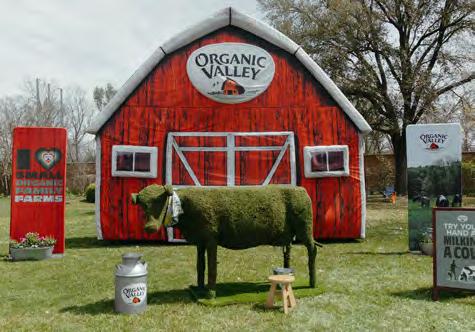

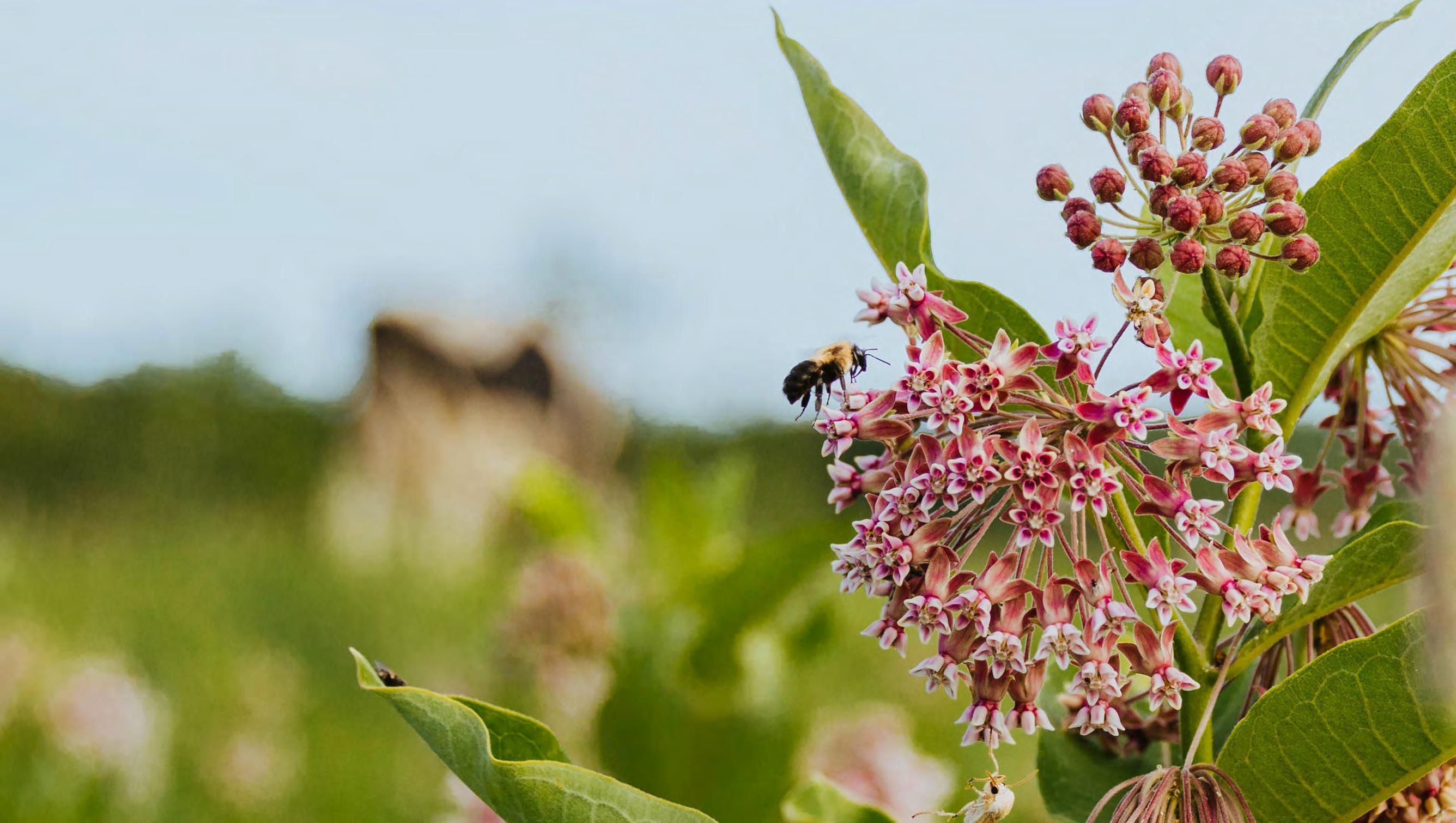
CARE for LIFE
ECOSYSTEMS AND LIFE ON FARMS
POLLINATOR AND WILDLIFE CONSERVATION
At Organic Valley, we believe that organic farming is not just about growing food, it’s about protecting where your food comes from. It’s about life thriving on organic farms. Our commitment to organic practices creates safe havens for pollinators and wildlife.
The word organic is, at the very root of the word, about life. Life on earth is organic, and organic certification for farmers is largely about preserving life and working with nature.
There is still so much more to learn, but what we know right now is that organic farming benefits the variety of life.
POLLINATORS THRIVE UNDER ORGANIC PRACTICES
Organic farms are sanctuaries for pollinators like bees and butterflies. By avoiding synthetic pesticides, our organic farms on average support 50% more pollinator species compared to conventional farms.
The absence of harmful agri-chemicals allows these vital insects to thrive, contributing to the health and productivity of our farms.
HEALTHIER SOIL LIFE (MICROBES AND EARTHWORMS)
Our organic practices also foster a rich and diverse soil ecosystem. Microbial biomass and enzyme activity are
significantly higher in organic soils, indicating a more active and healthy soil food web when compared to conventional farmland averages.
Earthworms, known as “ecosystem engineers,” are nearly twice as abundant in organic farming systems compared to conventional ones
These soil organisms play a crucial role in nutrient cycling and soil structure, enhancing the fertility and resilience of our farms.
HABITAT FOR WILDLIFE AND RARE SPECIES
Organic Valley farms are havens for wildlife. By maintaining semi-natural habitats like hedgerows and meadows and avoiding agri-chemical pesticides and herbicides sprays, we create environments where wildlife can flourish. Farmland birds, such as skylarks and bobolinks, reach higher population densities on our organic farms compared to conventional farmland.
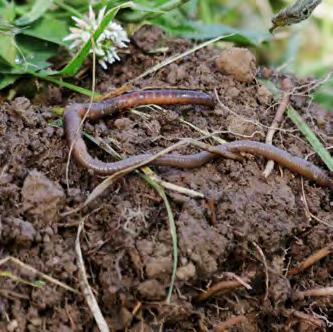

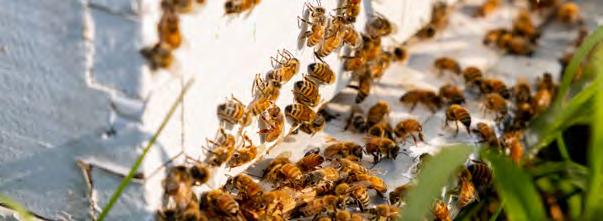
Similarly, wild plant species, including rare and endangered arable plants, are more diverse and abundant in our fields. By preserving crucial host plants like milkweed, we support monarch butterflies and other species that are rarely seen on conventional farms
SOURCE: https://pmc.ncbi.nlm.nih.gov/articles/PMC4299503/
SOURCE: https://www.frontiersin.org/journals/sustainable-food-systems/articles/10.3389/fsufs.2020.534187/full
SOURCE: https://besjournals.onlinelibrary.wiley.com/doi/10.1111/1365-2664.14650

ECOSYSTEMS AND LIFE ON FARMS
SOIL HEALTH IMPROVEMENTS
Care that goes into nurturing the soil is the foundation of sustainable agriculture, and at Organic Valley, we are committed to practices that enhance soil health and fertility.
SOIL ORGANIC MATTER & CARBON
Organic farming significantly increases soil organic matter and carbon content. Studies have shown that organic farms have 10-20% higher soil organic carbon compared to conventional farm averages.
SOIL ORGANISMS AND MICROBIAL ACTIVITY
The biological life in our soils is more abundant and active under organic management. Research shows that organically managed soils have greater microbial biomass and diversity than conventional soils. Earthworms, which thrive in organic systems, are nearly twice as abundant in organic fields than conventional farm fields.
These organisms improve soil aeration, drainage, and nutrient mixing, an approach that helps farms be productive and retain their soil health over time.
SOIL STRUCTURE AND FERTILITY
Enhanced organic matter and biological activity translate into strong soil structure. Organic soils tend to have higher aggregate stability, porosity, and water-holding capacity than conventional soils.
This means our organic fields are able to resist erosion and drought stress, maintaining soil structure and fertility over the long term. Organic practices like legume cover crops and manure inputs build up nutrient reserves naturally, without synthetic fertilizers, ensuring that our soils remain fertile and productive for generations to come.
At Organic Valley, we are proud of our commitment to organic farming practices that benefit the environment, support biodiversity, and enhance soil health. Our farmers are dedicated to nurturing the land and all the life it supports, creating a sustainable future for our farms and our planet.
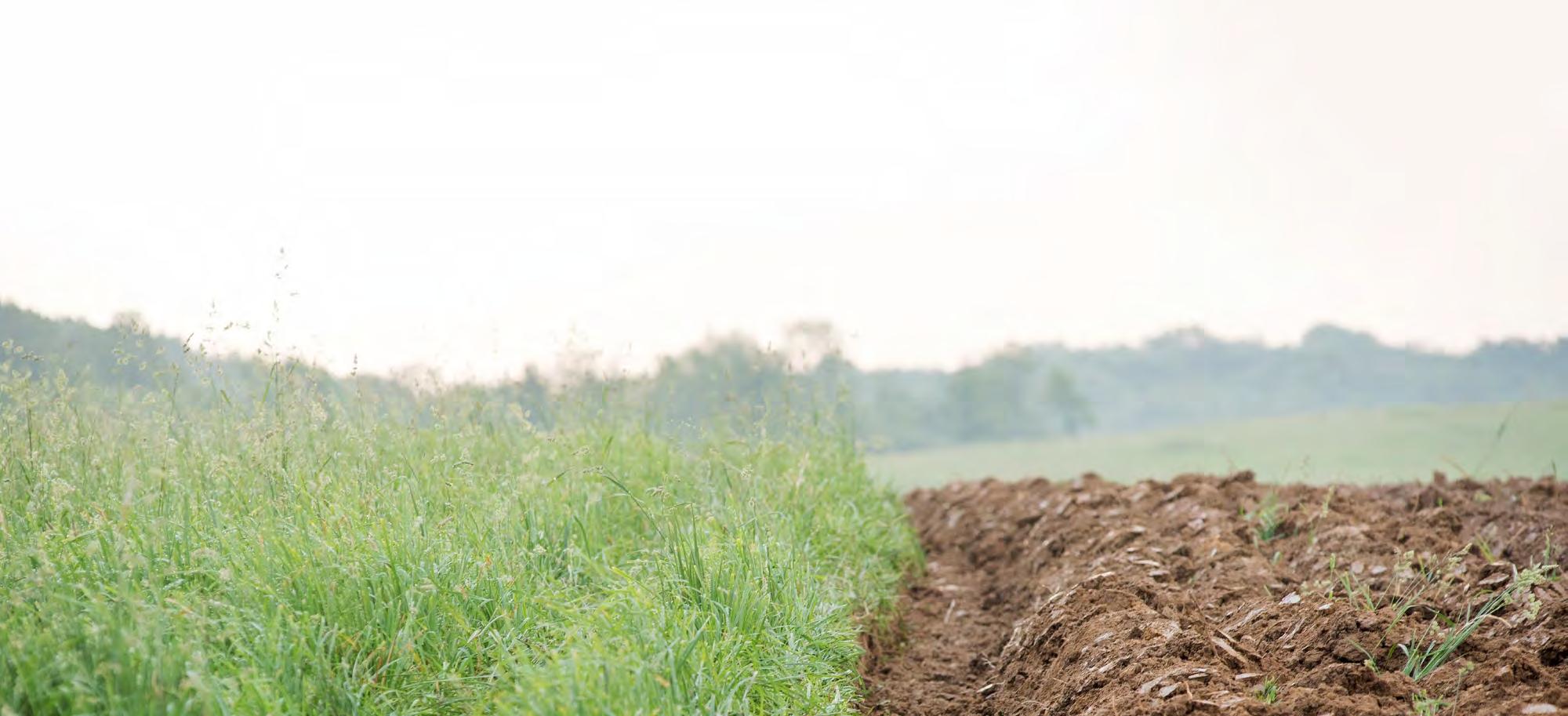
SOURCE: https://rodaleinstitute.org/science/farming-systems-trial/
SOURCE: https://www.frontiersin.org/journals/sustainable-food-systems/articles/10.3389/fsufs.2020.534187/full
SOURCE: https://besjournals.onlinelibrary.wiley.com/doi/10.1111/1365-2664.14650

ONE HEALTH — ALL LIFE

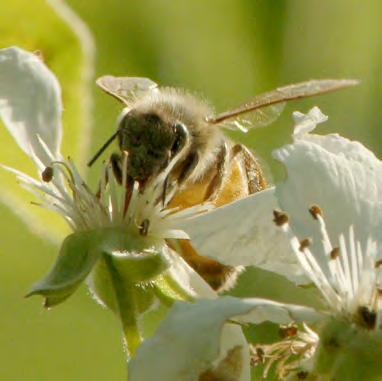
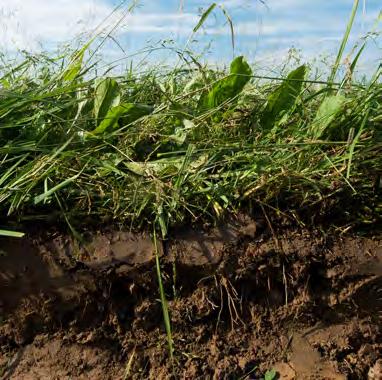
50% more pollinator species are supported on organic farms compared to conventional farms.
70% more wild bees are found in organic fields than conventional farm fields.
Earthworms are nearly 2x as abundant in organic farming systems compared to fields not managed organically.
Microbial biomass and enzyme activity thrives in organic soils.
10–20% higher soil organic carbon is found in organic farms compared to conventional averages.

SOURCE: https://pmc.ncbi.nlm.nih.gov/articles/PMC4299503/
SOURCE: https://rodaleinstitute.org/science/farming-systems-trial/
SOURCE: https://www.sciencedirect.com/science/article/pii/S092913932400581X
SOURCE: https://www.sciencedirect.com/science/article/abs/pii/S0167880917305169
SOURCE: https://besjournals.onlinelibrary.wiley.com/doi/10.1111/1365-2664.70074

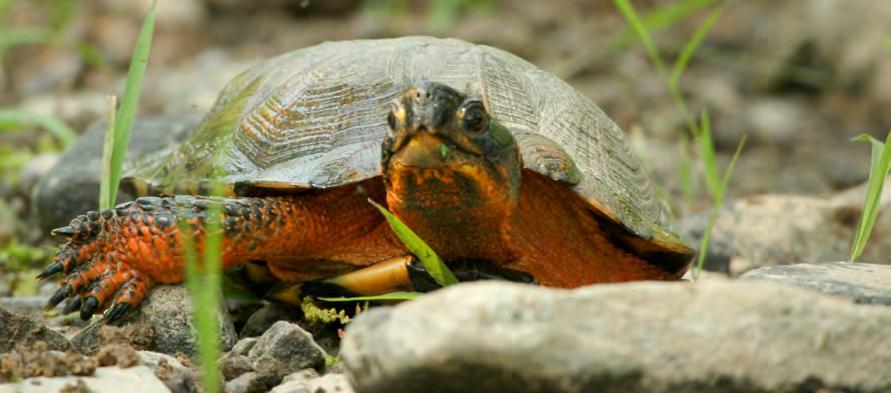

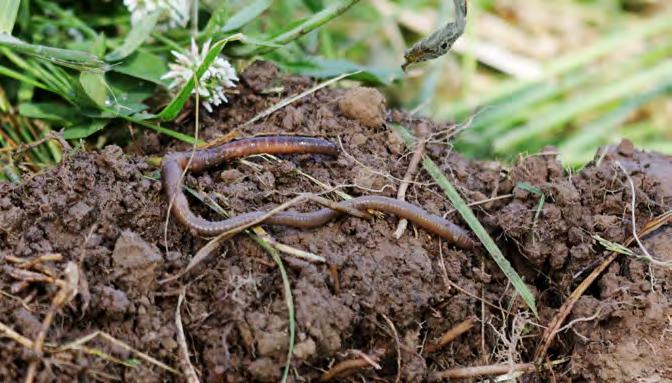


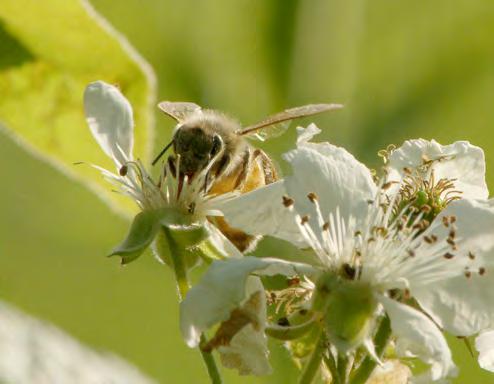


CARE for EARTH
At Organic Valley, our commitment to pioneering sustainable practices is unwavering. We are dedicated to benefiting both the environment and our farming communities. Reflecting on the past year, we are proud to share the progress we’ve made. Our efforts have focused on reducing our carbon footprint, enhancing biodiversity, and supporting our farmers in implementing regenerative organic practices. This report highlights our key initiatives and achievements, showcasing the impact of our collective efforts.
While the future is uncertain, we are steadfast in our mission to tend and care for organic farms that regenerate soil. Organic is regenerative. USDA Certified Organic is a powerful force for regenerative agriculture: substantiated and focused on benefits for people, animals, and the earth.
“Every time you work the soil to reseed you are setting soil, you are killing diversity. A 99-year-old pasture is better than a 5-year-old pasture. As soil goes, with age, it just gets better.”
- Ron Holter, Maryland
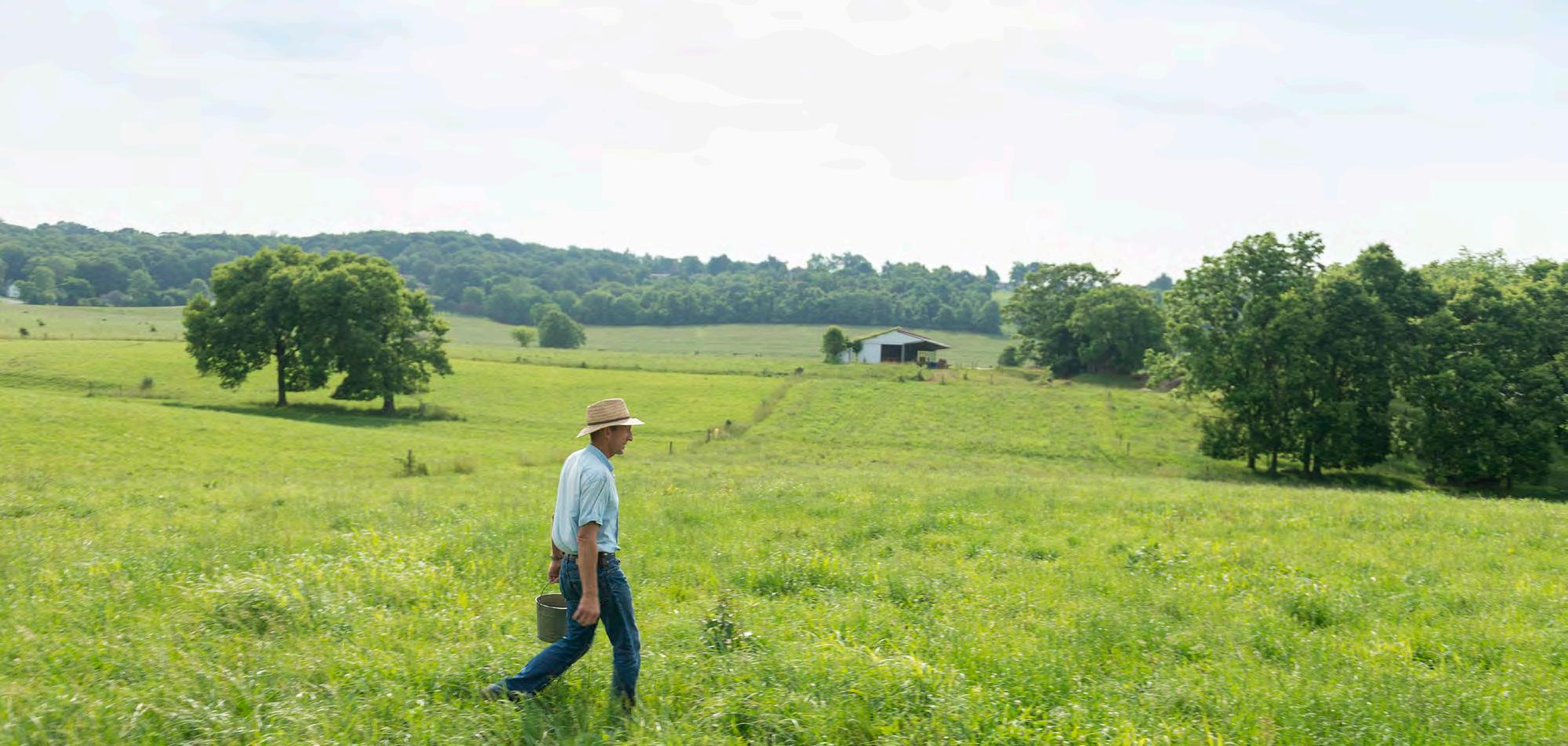
SUSTAINABLE ENVIRONMENTAL IMPACT
At Organic Valley, we’re working to be more environmentally friendly each year, making decisions, encouraging research, and reducing our environmental impact. As we celebrate the United Nations’ Year of Cooperatives, we are proud to highlight our cooperative’s efforts in reducing greenhouse gas emissions and promoting insetting. Our journey towards carbon neutrality by 2050 showcases the power of cooperative action.
ORGANIC VALLEY CARBON INSETTING PROGRAM
In 2023, we launched the Organic Valley Carbon Insetting Program (OVCIP), an innovative initiative that compensates our member-owners for implementing carbon reduction practices on their farms. This program not only helps us work toward our goal of carbon neutrality by 2050 but also offers select customers who share our supply chain a unique way to meet their own sustainability goals.
Through collaboration with the USDA and our memberfarms, we have redesigned our program to be more farmer-friendly and expanded eligible practices to include the enteric methane reducing dairy supplement Agolin Naturu™. By the end of 2024, we had a total of 79 practices on 65 farms enrolled in OVCIP. These practices include solid-liquid manure separation, solar energy, compost application, tree plantings (agroforestry), and feeding Agolin Naturu.
RED SEAWEED PROJECT
Our cooperative’s innovative spirit is on full display through the red seaweed project, a collaboration between the University of Minnesota Morris, Organic Valley staff, and Symbrosia™. This project received the Best Organic Research Award from Organic Voices at Expo West for its potential to significantly reduce methane emissions in organic dairy cattle without affecting milk production, animal health, or product quality. The study found that SeaGraze altered rumen fermentation, leading to lower methane output, with no adverse effects on body weight, rumination behavior, or milk fatty acid profiles.
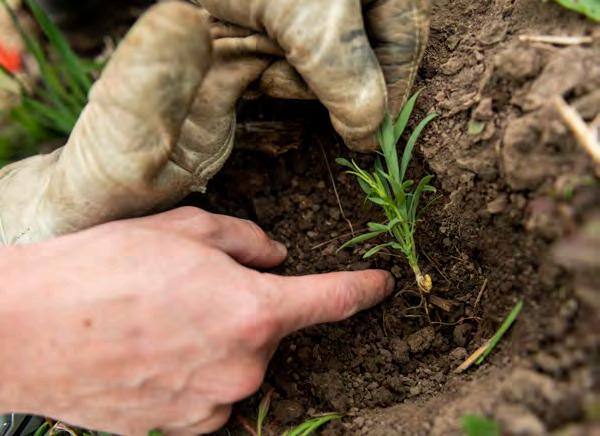
VERIFIED TONS OF CARBON
By August of this year, we will have our first Verified Tons of Carbon (VIUs) for on-farm OVCIP projects implemented in 2023 and 2024. We are partnering with multiple customers on how to co-claim these tons of carbon and tell the story of the tangible impacts of our cooperative’s and farmers’ efforts in reducing the carbon emissions in our shared supply chain.
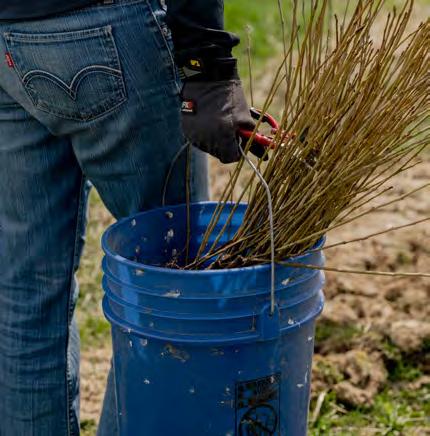
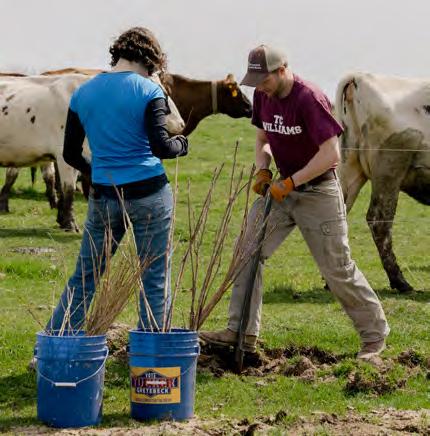
GREENHOUSE GAS EMISSIONS
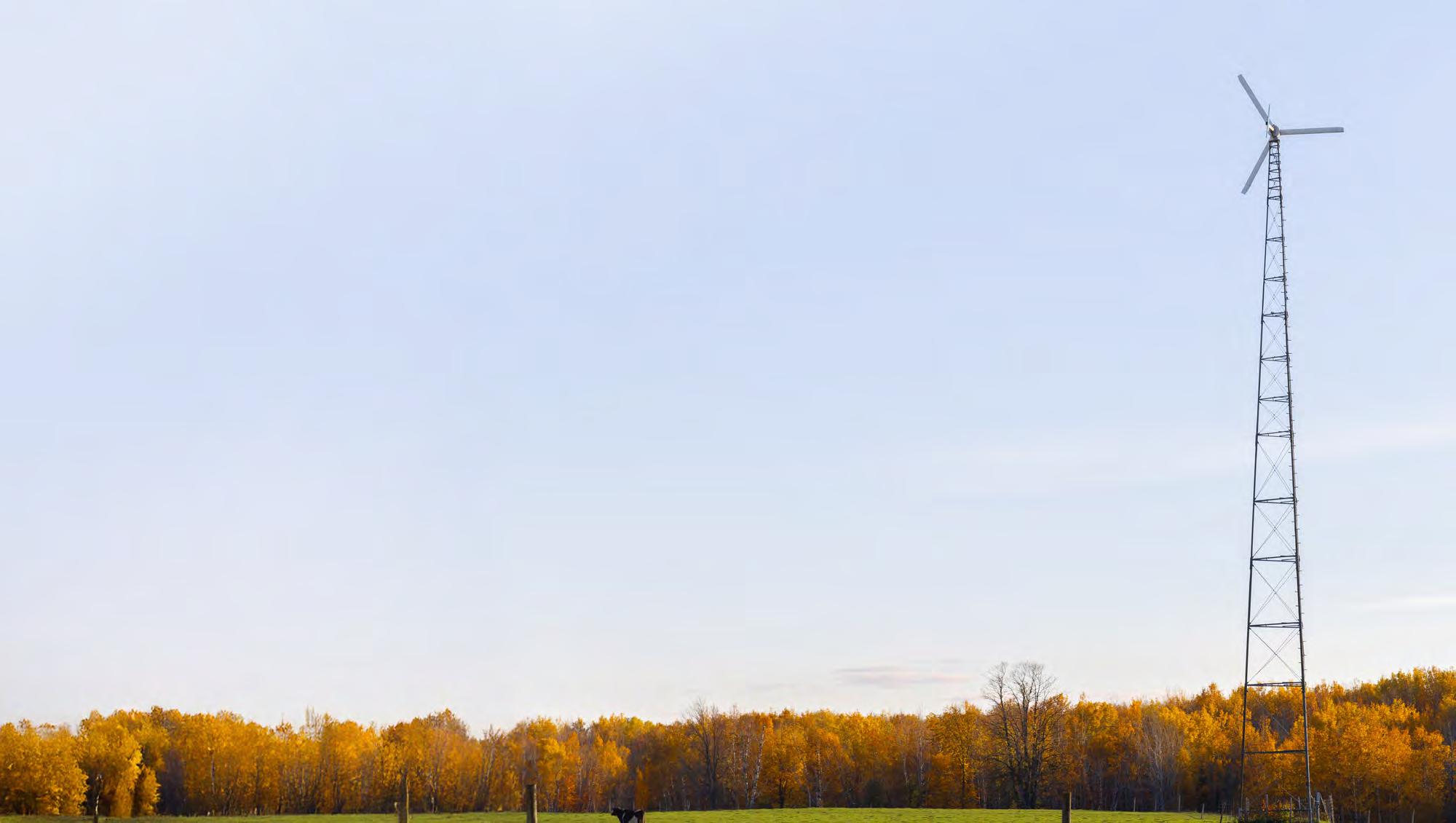
Organic Valley and our organic family farms are innovating ways to care for the land and the life that calls it home. We are closer and closer to meeting our GHG reduction goals, and over the next several years, we are planning to double down on improving how we measure and account for our GHG inventory. From 2019 to 2023, we have seen a steady decline in total emissions, with a notable reduction in Scope 3 farm emissions, which is the focus of the OVCIP. Our annual GHG emissions are currently reducing at the rate of around 4%. We focus our emissions reduction efforts on the following three scopes:
SCOPE 1: Direct emissions from the nonrenewable energy required to run the facilities we own as well as powering the vehicles we own.
SCOPE 2: Indirect emissions from the generation of purchased electricity in facilities we own (maintained at zero due to our commitment to 100% renewable energy).
SCOPE 3: All other indirect emissions that occur in the value chain.
As we continue to refine our greenhouse gas inventory, we are working diligently on our 2024 full environmental accounting to sharpen our measurements. This effort involves a comprehensive review and
improvement of our accounting methods to ensure that our data accurately reflects our environmental impact. By refining our carbon accounting practices, we aim to provide a clearer picture of our progress and identify areas for further improvement.
Despite the ongoing refinement of our carbon accounting, we continue to see significant environmental and greenhouse gas benefits from our foundational work in 2019. One of the key achievements from that year was ensuring that our own facilities run on 100% renewable energy. This commitment to renewable energy has been maintained, with Scope 2 emissions consistently at zero since 2020. Our dedication to renewable energy not only reduces our carbon footprint but also sets a strong example for sustainable business practices within the cooperative and beyond.
As we continue to refine our greenhouse gas inventory and expand our climate initiatives, we remain committed to continuous improvement. Our cooperative’s efforts in climate action are a shining example of how cooperatives can build a better world, aligning with the United Nations’ vision for 2025.
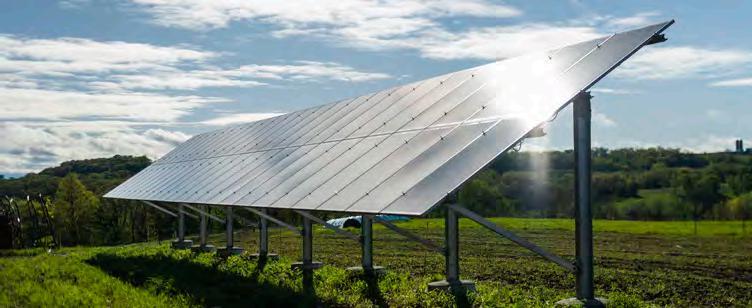
ORGANIC VALLEY LIFECYCLE ASSESSMENT
CLIMATE GOAL 2030 MILESTONE TARGET
Our commitment to transparency and continuous improvement is evident in our lifecycle assessment (LCA) efforts. By partnering with organizations like the University of Wisconsin-Madison, we have conducted even more comprehensive LCAs to track our greenhouse gas emissions and understand the environmental impact of our products throughout the supply chain. The results have been promising, with Organic Valley’s national dairy farm’s average greenhouse gas emissions being 24% lower than conventional U.S. dairy averages.
Carbon sequestration from pasture and forage production has reduced net emissions by 15% on average. These assessments provide us with a roadmap for achieving our carbon reduction targets, including a 15% reduction by 2030 and a 30% reduction by 2035. Our dedication to sustainable food production and responsible waste management positions Organic Valley as a leader in the organic industry, working toward a better future for all.
ORGANIC VALLEY CARBON INSETTING
Impact at scale is one of the unique challenges of our time. To make a positive climate impact, to benefit ecosystems and their caretakers, Organic Valley farmers and employees continue to innovate our carbon insetting program. From concept to on-farm change on hundreds of family farms in just a few years, the goal of this program was and is to pay farmers to ramp up increasing organic life in the soil and decreasing carbon output into the atmosphere.
The Organic Valley Carbon Insetting Program (OVCIP) will, in 2025, share its first Verified Impact Units (VIUs). This means the program has gone beyond proof-of-concept, and into measurable carbon benefits derived from practices our farmers have put in place on site. These practices were then measured and turned into VIUs that are ready to be applied to the carbon footprints of Organic Valley and collaborating supply chain partners.
This program supports our farmer member-owners in adopting climate-smart agriculture practices by providing payments for participation, annual payments tied to carbon reduction,
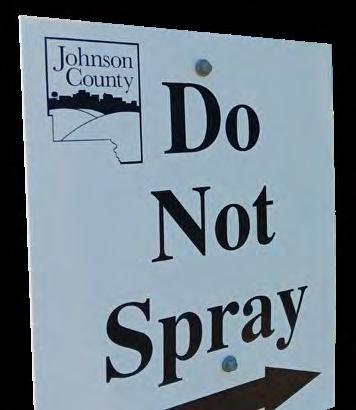
and no-cost technical assistance. The OVCIP has enabled farmers to experiment with new management practices, improve water quality, enhance soil health, and increase natural disaster resilience.
These practices range from solar installations to reduce reliance on grid power and lower expenses to practices dedicated to improving cow comfort, pasture quality, and even the amount of methane released by organic herds. Practices like tree planting and composting in this program not only reduce carbon but are also shown to positively impact the ecosystems around them by creating spaces for life to thrive.
Through OVCIP, we are on our way to meeting our goal of carbon neutrality by 2050, a goal we take seriously. Current data measurement in our scope 1, 2, and 3 show us closing in on our 2030 interim target, keeping us on the path to creating an insetting-focused carbon neutral organic dairy supply chain.
The program is among the first of its kind and represents a huge opportunity for Organic Valley farmers, our customers, and our supply chain partners.
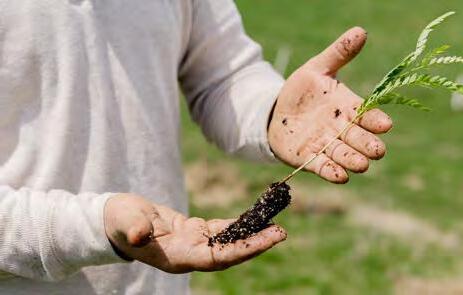
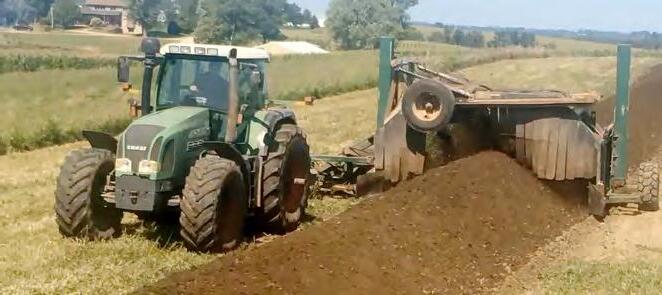
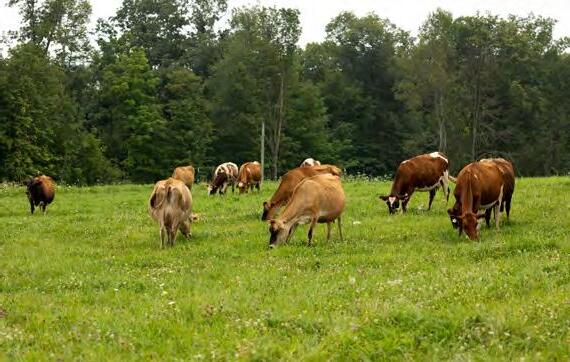
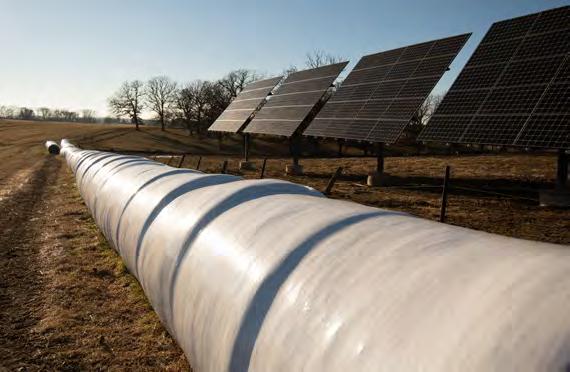
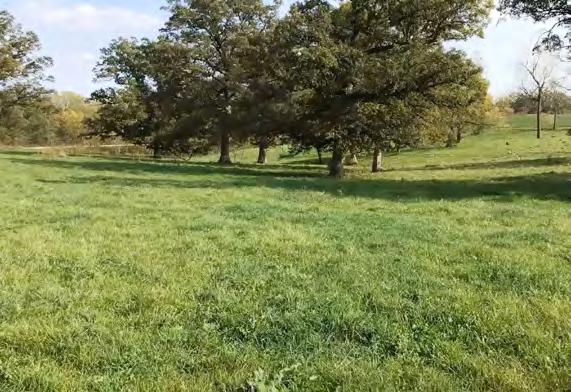

Farmers in our cooperative have a multitude of practices that they have passed down from generation to generation or invented for the first time just this last year, unfortunately we only have space to talk about a few of them in this report. If you want to learn more, however, we have a news and resources site called Rootstock (www.OV.coop/blog) where you can find the latest and greatest, and some of the old and powerful in food and farming information.
